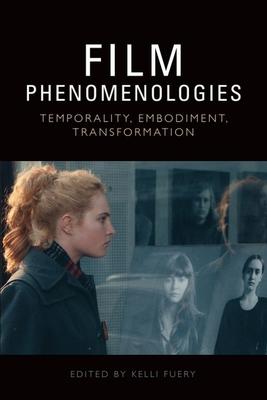With an interdisciplinary agenda, Film Phenomenologies investigates the emerging field of film phenomenology, linking the fundamental significance of early thinkers and related methods of phenomenological investigation to newer emphases and diverse voices, such as Gaston Bachelard, Karen Barad, Simone de Beauvoir, bell hooks, Iris Murdoch and Hermann Schmitz.
Established scholars consider various themes, including colonial duration and the politics of refusal, feeling feminist time, the exchange of play, scalar theory and scattered bodies, spectatorship and the entanglement of montage, disability, dance and speculative embodiment, AI phenomenology and breath gestures, cinematic atmospheres, the precarious intimacy of the film screen, stardom and biopics, and Black lived experience.
Divided into three parts, Film Phenomenologies offers a collective combination of phenomenological approaches, braiding classic and critical methods to explore aesthetic, embodied, ethical, and political perspectives. It is the first collection to provide a substantial engagement with diverse and inclusive directions in the field of film and media studies.

Film Phenomenologies: Temporality, Embodiment, Transformation
With an interdisciplinary agenda, Film Phenomenologies investigates the emerging field of film phenomenology, linking the fundamental significance of early thinkers and related methods of phenomenological investigation to newer emphases and diverse voices, such as Gaston Bachelard, Karen Barad, Simone de Beauvoir, bell hooks, Iris Murdoch and Hermann Schmitz.
Established scholars consider various themes, including colonial duration and the politics of refusal, feeling feminist time, the exchange of play, scalar theory and scattered bodies, spectatorship and the entanglement of montage, disability, dance and speculative embodiment, AI phenomenology and breath gestures, cinematic atmospheres, the precarious intimacy of the film screen, stardom and biopics, and Black lived experience.
Divided into three parts, Film Phenomenologies offers a collective combination of phenomenological approaches, braiding classic and critical methods to explore aesthetic, embodied, ethical, and political perspectives. It is the first collection to provide a substantial engagement with diverse and inclusive directions in the field of film and media studies.